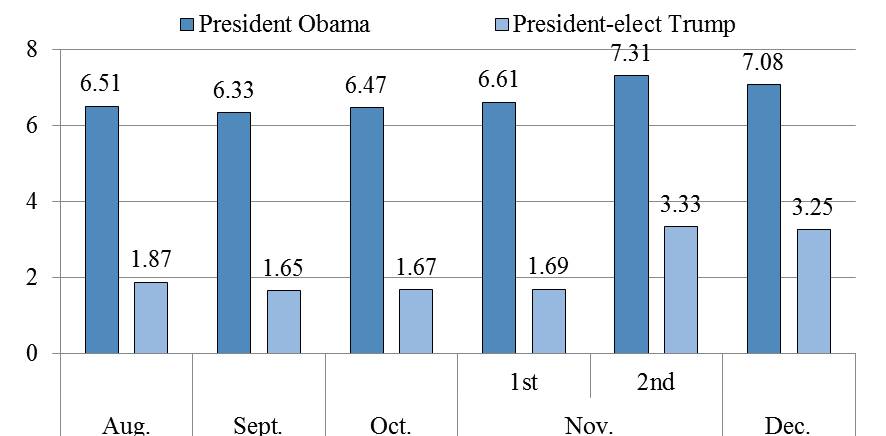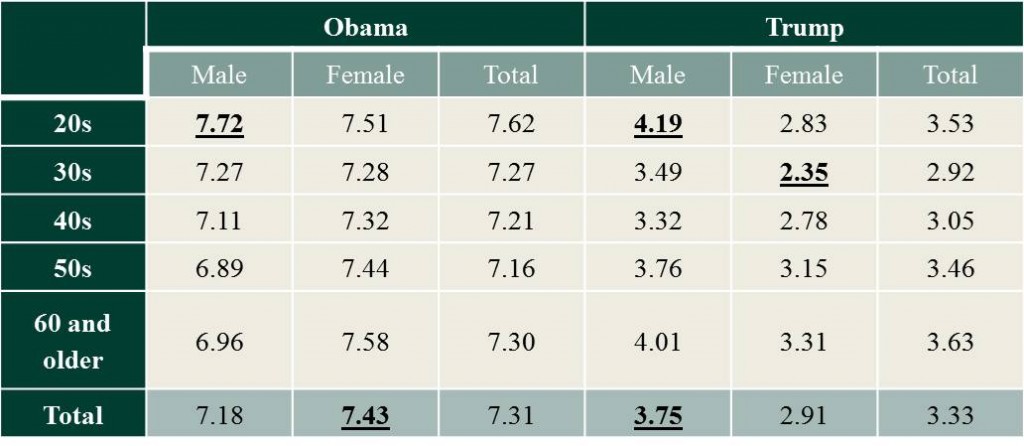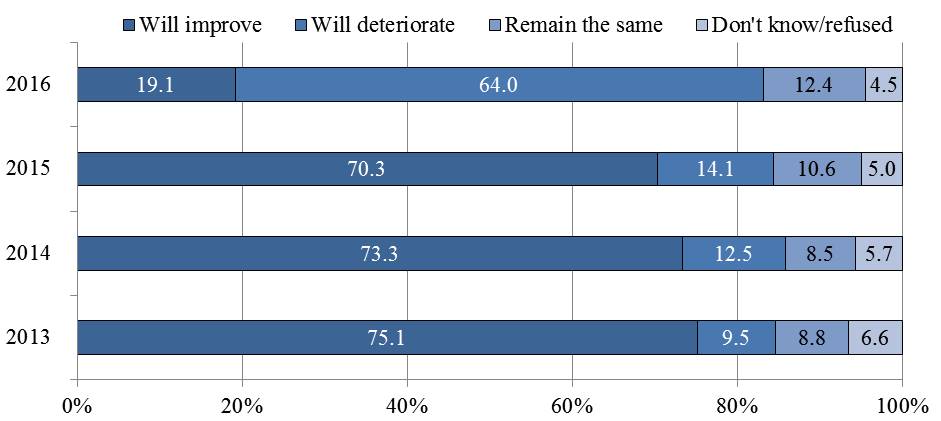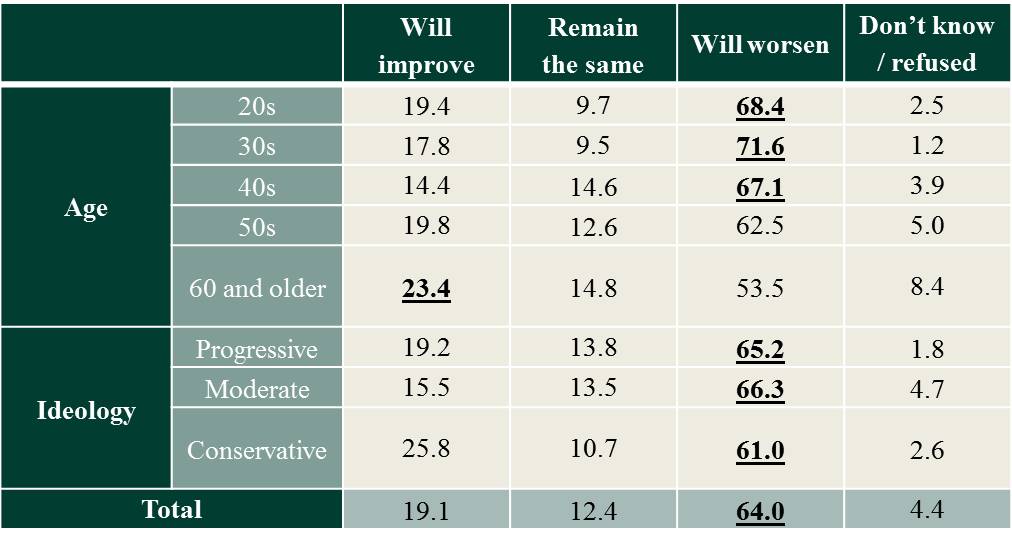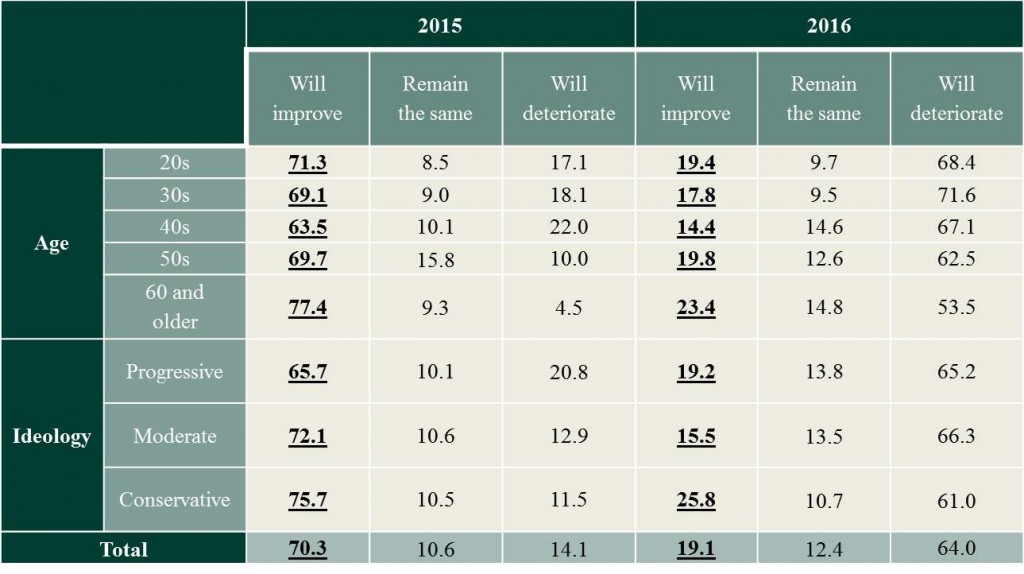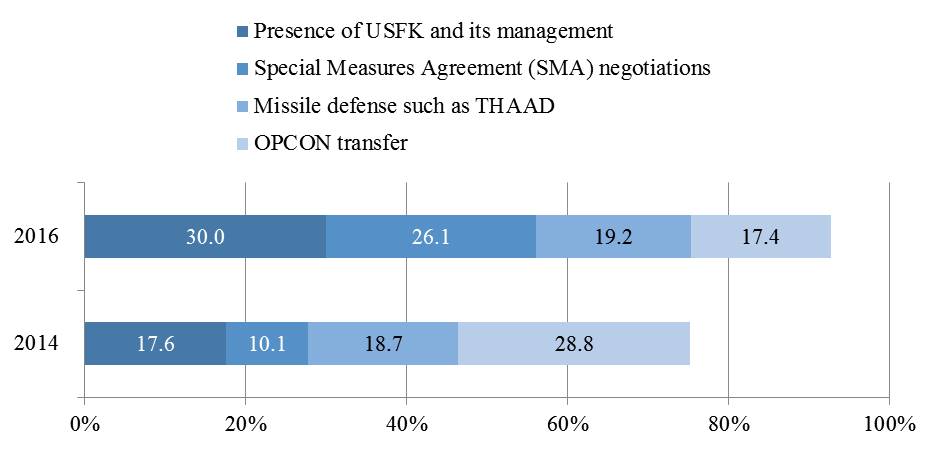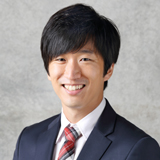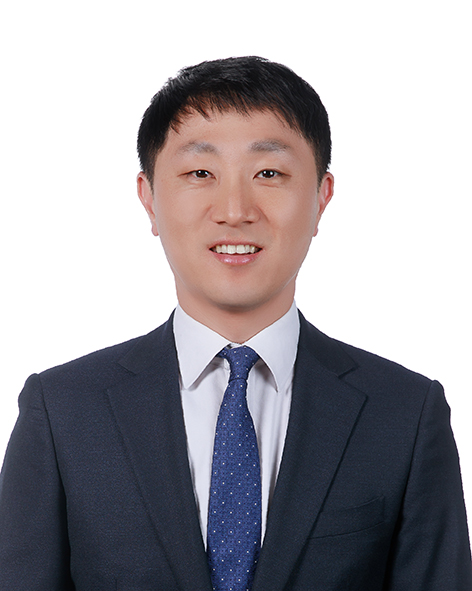Introduction
The 58th U.S. presidential election in November 2016 will go down as one of the most stunning political events in U.S. history. Throughout the campaign, Democratic presidential nominee Hillary Clinton was considered the clear favorite to succeed President Barack Obama. However, Republican presidential nominee Donald Trump upset Clinton to become the next occupant of the White House. Trump’s victory sent shockwaves across the world, with countries rushing to assess its impact on their national interests. This was no different in the Republic of Korea (hereafter, Korea or ROK), where Koreans were undergoing their own political crisis. Given the close relationship between the two countries and the strong rapport developed under President Obama, the major political changes enveloping Washington are bound to impact Seoul’s security and economy. Moreover, the fact that Trump is a political novice, an outsider, and a maverick has added to the growing level of interest and concern among the Korean government, foreign policy experts, and the public.
As we approach President-elect Trump’s inauguration, the major concern among Koreans has been whether he will follow through with the foreign policy initiatives that he hinted at on the campaign trail. Many Asian countries share this concern, given that Trump has failed to present a clear and substantive vision for the region. At this juncture, the only certainty is that Trump will put American interests first, a move which will inevitably impact ROK-US relations.
Using the Asan Institute for Policy Studies’ regular public opinion surveys and special survey conducted after the November election, this issue brief will examine how Koreans view Trump as a leader, how they foresee ROK-US relations in the Trump era, and what issues they see as obstacles to the bilateral relationship moving forward.
This issue brief makes the following conclusions: First, Donald Trump’s favorability rating among Koreans improved after the November election. However, he continued to trail Barack Obama by a significant margin. His negative statements about Korea on the campaign trail explain the level of disapproval among Koreans. This subsequently boosted Obama’s popularity. Second, a majority of Koreans were pessimistic about the future of ROK-US relations as a result of the election. Trump’s statements about renegotiating the KOR-US FTA and the Special Measures Agreement (SMA) in the U.S.’ favor created a pessimistic outlook towards the bilateral relationship. Once again, this draws stark contrast to the level of optimism that existed during the Obama administration. Lastly, both Korea and the United States face a number of pending issues, including the deployment of THAAD, relocation of U.S. Forces Korea (USFK), and OPCON transfer, that make this a particularly tense and important time. For the President-elect, there is the possibility that his negative public image in Korea could quickly reignite the anti-American sentiment that has been dormant since the beef protests in 2008. He must be mindful of this possibility as he approaches relations with Korea.
President Obama vs. President Trump
Beginning in August 2016, the Asan Institute for Policy Studies conducted a series of monthly public opinion surveys to gauge Koreans’ favorability of Republican nominee Donald Trump and Democratic nominee Hillary Clinton. On a scale of 0-10 (0=least favorable; 10=most favorable), Trump’s favorability ratings were 1.87 (August), 1.65 (September), 1.67 (October), and 1.69 (1st survey in November). As shown in Figure 1, his numbers improved following the election to 3.33 (2nd survey in November) and 3.25 (December). A number of factors may have contributed to the rise of Trump’s favorability. The most likely explanation is the so-called bandwagon effect, in which Trump’s victory improved his image in the eyes of Koreans, thus boosting his favorability. The level of consistency between Trump’s pre- and post-election rhetoric gives credence to this particular idea. The age cohort that showed the greatest amount of fluctuation in its assessments of Trump belonged to Korean men aged 60 and older. In August, their rating of Trump was 1.57, but it rose by 2.44 points to 4.01 in the second November survey.1
In contrast, President Barack Obama’s approval ratings have been consistently high throughout his eight-year presidency. He received an impressive 7.31 in the second November survey, which was his highest since July 2013. Even with Trump’s rating almost doubling from 1.69 to 3.33 in the post-election period, he trailed Obama by a wide margin. President Obama’s rating was particularly high among Koreans in their 20s, with a score of 7.62.
As pointed out in previous reports published by the Asan Institute, President Obama has enjoyed consistently high favorability ratings among Koreans. In the aftermath of Trump’s victory, his points surged even higher2. In December, Obama’s favorability rating was 7.08, eclipsing a score of 7.00 in two consecutive months. This number does not necessarily reflect Koreans’ approval of his performance during this particular period. Rather, it is the likely culmination of many Koreans’ attraction to the United States as a country and Obama’s personal charm. These factors played an even greater role as President-elect Trump continued to make provocative statements about the ROK-US alliance, USFK, and the KOR-US FTA, among others. In that sense, Trump’s negative rhetoric about Korea only strengthened Koreans’ favorable opinion of the outgoing President Obama.
Figure 1. Favorability Ratings: Barack Obama vs. Donald Trump (Scale: 0-10)1
Favorability ratings for President Obama and President-elect Trump have been most pronounced along gender lines. As shown in Table 1, President Obama was received more favorably by women (7.43) than men (7.18). On the other hand, President-elect Trump received a lower score from women (2.91) than men (3.75). For Trump, there was almost a 1-point difference between the genders, which suggests that Trump’s sexist comments on the campaign trail may have influenced how Korean women perceive him. Korean women in their 30s were particularly hostile towards Trump (2.35).
The respondents that were most favorable towards Trump belonged to Korean men in their 20s. Their score of 4.19 was the highest among all age and gender groups. This, however, does not imply that the Korean youth were particularly favorable towards Trump, since this same group gave Obama a score of 7.72, also the highest among all age and gender cohorts. Rather, their overall favorable view of the United States induced them to better evaluate both American leaders.
Table 1. Favorability Ratings:
Barack Obama vs. Donald Trump, by Age and Gender (Scale: 0-10)1
A Pessimistic Forecast: ROK-US Relations in the Trump Era
Trump’s low ratings should not come as a surprise, given his negative statements about Korea. His comments about the KOR-US FTA and the Special Measures Agreement (SMA) were particularly alarming for many Koreans, who took his rhetoric as a sign of things to come and negatively influenced Koreans’ future projection of ROK-US relations. Specifically, 64% of Koreans projected a worsening of relations between Korea and the United States, while only 19.1% said relations will improve. 12.4% of respondents answered that relationship will remain, more or less, the same. Another reason why Koreans expect the bilateral relations to worsen is Trump’s lack of experience and his seemingly shallow understanding of the two countries’ history. Furthermore, his appointment of hardline conservatives to key foreign policy positions in the White House, including the National Security Council (NSC) and the Department of Defense, worried the Korean public. From the Korean perspective, these appointments have grave implications, given their ability to alter the U.S. approach to North Korea.
These results draw stark contrast to previous surveys5. When the Asan Institute first began conducting public opinion surveys about ROK-US relations in 2013, we observed an overwhelming sense of optimism surrounding the bilateral relationship. Throughout President Obama’s tenure, more than 70% of Koreans have consistently answered that ROK-US relations will improve. Only 9.5% in 2013 and 14.1% in 2015 answered that relations will deteriorate.
Figure 2. Yearly Assessment of ROK-US Relations (%)6
As Table 2 shows, there is widespread negativity surrounding the future of ROK-US relations. This is especially visible among Koreans in their 20s (68.4%), 30s (71.6%), and 40s (67.1%). Interestingly, this negative forecast also holds true along ideological lines. 65.2% of progressives and 61% of conservatives agreed that ROK-US relations will worsen in the future. The fact that a majority of conservatives, who are typically favorable towards the U.S., expect a worsening of relations indicates just how pervasive this concern is in Korea.
Table 2. Assessment of ROK-US Relations, by Age and Ideology (%)7
Korean women in their 20s and 30s were particularly pessimistic about the bilateral relationship. 75% of women in their 20s and 81.6% of women in their 30s projected that relations will worsen. Since these cohorts were also most antagonistic against Trump, we can assume that their negative image of Trump has impacted their forecast of the bilateral relationship. In the past, the success of Obama’s public diplomacy and his personal charm have been the major reasons why Koreans held a positive view of the United States and the bilateral relationship. Unfortunately for Trump, he is off to a difficult start, thanks to his low favorability rating among Koreans.
We compared results from the November 2016 survey with the September 2015 survey for further analysis. In 2016, the level of optimism surrounding the bilateral relationship dropped precipitously while the level of pessimism surged across all age cohorts. The shift to a negative projection was most noticeable among Koreans in their 30s and 50s8. These changes were also visible throughout the ideological spectrum. Progressives, moderates, and conservatives all lost their sense of optimism by 46-50%. The drop was most visible among moderates, whose number dropped by 56.6%, from 72.1% to 15.5%. Considering that the number of people who believed that the relationship would remain the same hardly changed between the two years, the transition from near universal optimism to pervasive pessimism is even more striking.
Table 3. Yearly Assessment of ROK-US Relations, by Age and Ideology (%)9
During the campaign, Trump labeled Korea a “free rider” and criticized the country for not paying enough for the services of US forces on the Korean Peninsula. He even mentioned the possibility of having Korea pay all USFK costs. Furthermore, his rhetoric suggested that Korea should take full responsibility for its own security, implying the possibility of a complete withdrawal of US forces from the peninsula. In terms of the bilateral FTA, he expressed his desire to renegotiate the “disastrous” trade deal.
27.3% of Koreans agreed that a new cost-sharing agreement would increase their government’s defense budget and lead to worsened relations. Another 26.4% stated that Trump’s “America First Policy” would have a similar effect. 18.6% were also worried that Trump’s protectionist trade measures would result in the renegotiation of the KOR-US FTA. When we looked at the above results by age cohort, Koreans in their 20s (29.3%), 30s (36.0%), and 40s (26.6%) were most concerned about Trump’s “America First Policy” and his foreign policy in general. For older Koreans in their 50s (29.9%) and 60s (48.6%), the SMA and an increased defense budget were most worrisome.
Koreans also expressed concern about the long-standing military alliance between the two countries, which contrasts with recent trends. These concerns arose when respondents were asked to identify important pending military issues between the two countries. When we compared the November 2016 survey results with those of March 2014, we observed growing public awareness of issues regarding the cost-sharing agreement, and the presence and maintenance of USFK. In the 2014 survey, only 10.1% of Koreans identified SMA as an important military issue within the alliance. This number more than doubled to 26.1% in 2016. The presence and maintenance of USFK was chosen as the most important issue by 17.6% of Koreans in 2014, a number which rose 12.4% to 30% in 2016. This is most likely the result of Trump’s statements on the campaign trail and the subsequent coverage by the Korean media.
There was a noticeable difference in the way Koreans prioritized military issues. For instance, 28.8% and 18.7% of Koreans identified OPCON transfer and the missile defense system, respectively, as most important in 2014. In 2016, however, more attention focused on issues that Trump controversially addressed during the campaign. They saw the presence and maintenance of USFK (30%) as most important, followed by SMA (26.1%). THAAD, which continues to stir controversy within Korea, was ranked third (19.2%), followed closely by OPCON transfer (17.4%). As previously stated, Koreans have been paying close attention to the U.S. election and President-elect Trump.
Figure 3. Major Issues involving the ROK-US Alliance (%)10
Conclusion
For Korea, Donald Trump’s election has added uncertainty and unpredictability in the way the United States will transition into the post-Obama period. As our surveys show, low favorability ratings of Trump among Koreans and Trump’s “America First Policy” have clouded ROK-US relations.
There are a number of issues that the two countries will have to resolve, including the deployment of THAAD, the relocation of USFK, OPCON transfer, and negotiation of SMA. While public opinion on these issues does not and should not dictate foreign policy, it is valuable in the sense that it adds legitimacy and leverage for the government to fully implement their strategic initiatives. Any incoming American president must not overlook the importance of Korea’s public opinion, especially considering how negative public opinion towards the U.S. in the past quickly incited anti-Americanism in Korea. As both countries move forward, they must not forget that close cooperation will be essential. The United States must understand that the alliance remains critical to its interests in Northeast Asia.
Methodology
– Sample size: 1,000 respondents over the age of 19
– Margin of error: +3.1% at the 95% confidence level
– Survey method: Random Digit Dialing (RDD) for mobile and landline telephones using Computer-Assisted Telephone Interviewing (CATI)
– Period: See footnote of each figure/table
– Organization: Research & Research
The views expressed herein do not necessarily reflect the views of the Asan Institute for Policy Studies.
- 1.
This is a trait that is particularly visible among Koreans in this age group. This age cohort has shown a tendency to shift their opinions based on the type of political party in power and social atmosphere. For example, they were most anti-Japan among the age groups prior to the comfort women agreement. Once the agreement was announced, they opinion shifted towards maintaining a forward-looking relationship with Japan.
- 2.
Woo Jung-Yeop and Kang Chungku, “Koreans favorability of U.S. presidential nominees: Clinton 5.94 vs Trump 1.87,” Asan Blog, 2016.
- 3.
Asan’s regular and special surveys (Dates: Aug. 1-3, 2016; Sept. 1-3, 2016; Oct. 4-6, 2016; Nov. 1-3, 2016; Nov. 22-24, 2016; Dec. 1-3, 2016).
- 4.
Asan’s special survey (Date: Nov. 22-24, 2016).
- 5.
The question wording used from 2013-2015 was slightly different in the 2nd November 2016 survey. In 2013-2015, we asked, ‘Do you think ROK-US relations will improve or worsen?’ In 2016, however, we asked ‘How do you foresee the ROK-US relations after Donald Trump becomes U.S. president?’
- 6.
Asan’s regular and special surveys (Dates: June 7-9, 2013; Sept. 28-30, 2014; Sept. 9-11, 2015; Nov. 22-24, 2016).
- 7.
Asan’s special survey (Date: Nov. 22-24, 2016).
- 8.
Optimism regarding the ROK-US relations dropped the most among Koreans who were 60 and older. In 2015, 77.4% of them assessed the relationship positively, while only 22.3% did so in 2016. On average, the drop ranged from 49-51% throughout the various age groups.
- 9.
Asan’s regular and special surveys (Dates: Sept. 9-11, 2015; Nov. 22-24, 2016).
- 10.
Asan’s regular and special surveys (Dates: Mar. 16-18, 2014; Nov. 22-24, 2016). The answer choices given to respondents in 2014 were slightly different in 2016 in that ‘relocation of UFSK’ was taken out as an option in 2016.

 Facebook
Facebook Twitter
Twitter